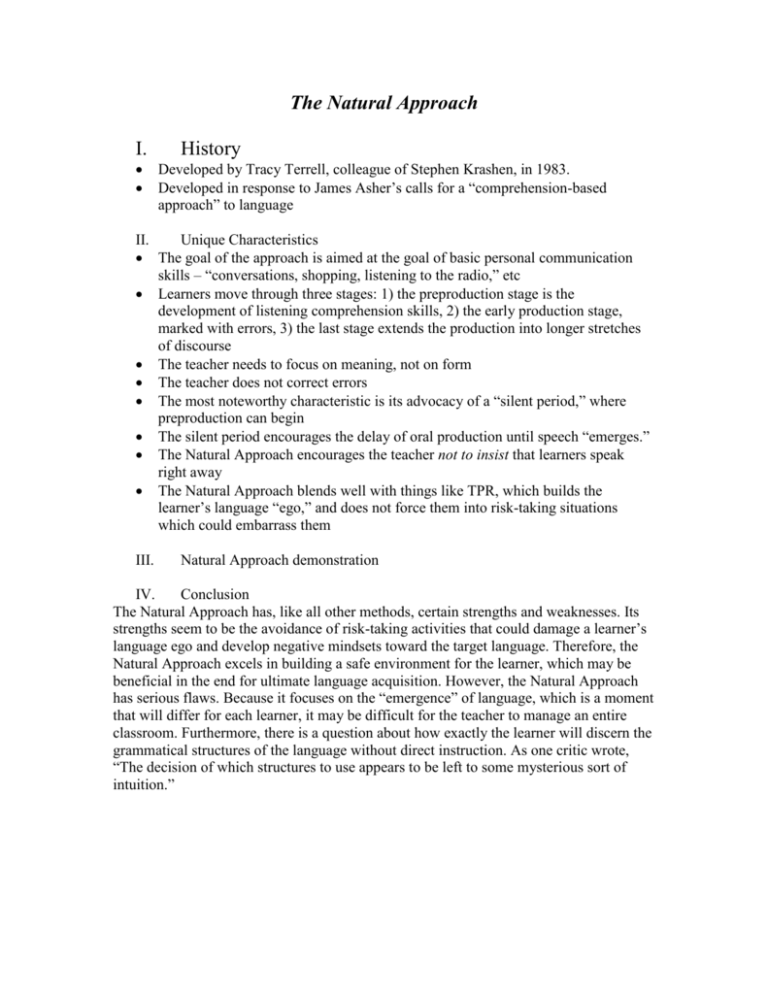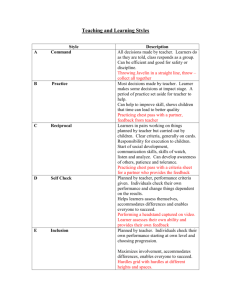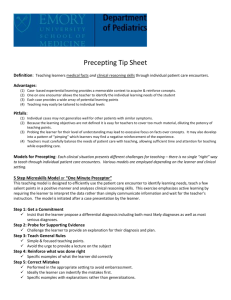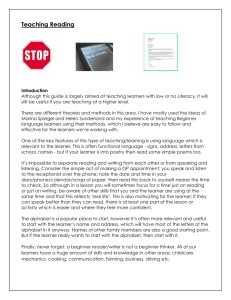The Natural Approach
advertisement

The Natural Approach I. History Developed by Tracy Terrell, colleague of Stephen Krashen, in 1983. Developed in response to James Asher’s calls for a “comprehension-based approach” to language II. Unique Characteristics The goal of the approach is aimed at the goal of basic personal communication skills – “conversations, shopping, listening to the radio,” etc Learners move through three stages: 1) the preproduction stage is the development of listening comprehension skills, 2) the early production stage, marked with errors, 3) the last stage extends the production into longer stretches of discourse The teacher needs to focus on meaning, not on form The teacher does not correct errors The most noteworthy characteristic is its advocacy of a “silent period,” where preproduction can begin The silent period encourages the delay of oral production until speech “emerges.” The Natural Approach encourages the teacher not to insist that learners speak right away The Natural Approach blends well with things like TPR, which builds the learner’s language “ego,” and does not force them into risk-taking situations which could embarrass them III. Natural Approach demonstration IV. Conclusion The Natural Approach has, like all other methods, certain strengths and weaknesses. Its strengths seem to be the avoidance of risk-taking activities that could damage a learner’s language ego and develop negative mindsets toward the target language. Therefore, the Natural Approach excels in building a safe environment for the learner, which may be beneficial in the end for ultimate language acquisition. However, the Natural Approach has serious flaws. Because it focuses on the “emergence” of language, which is a moment that will differ for each learner, it may be difficult for the teacher to manage an entire classroom. Furthermore, there is a question about how exactly the learner will discern the grammatical structures of the language without direct instruction. As one critic wrote, “The decision of which structures to use appears to be left to some mysterious sort of intuition.”











